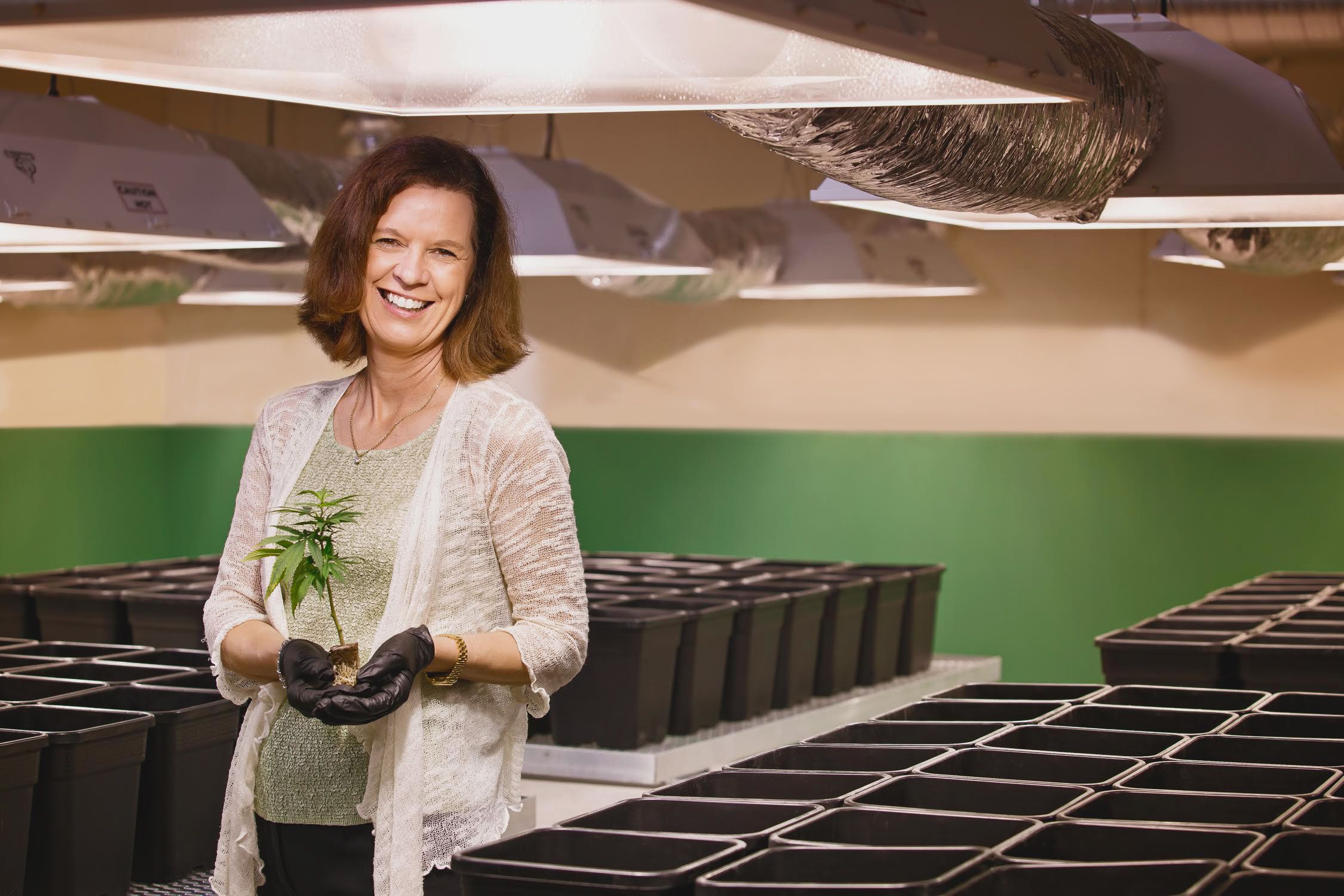Last month, Surterra Therapeutics broke records to become the first fully licensed cannabis farm growing the plant in Florida. The medical cannabis cultivation, processing and dispensary company expects to sell its first products by June, well ahead of the 210-day rule from the Department of Health (DOH) and keeping it months ahead of any competition.
Surterra’s willingness to take on some risk by building its first facility — a 6,000 square foot indoor farm — before getting initial approval last November, is one of the main reasons it is the first to start growing cannabis after the DOH inspected the facility last month, according to Jake Bergman, founder and CEO of Surterra.
“We did a lot of preparation at the same time as pursuing a licence to prove we were serious about investing our time and efforts in building state of the art facilities; we wanted to prove we were ready to go,” he told AgFunderNews. “Many groups in Florida have not done that, but we thought it was the right thing to do, and in some ways it de-risked the selection process as we could show the department of health pictures of the facility under construction so that they knew we were professional players.”
Surterra formed when Bergman and his co-founders were researching various sectors for individual managed funds. Legal cannabis “kept cropping up” and they started researching the sector in 2013, according to Bergman. As they started doing due diligence, they found that the sector was still very disorganized and unprofessional. “We also felt that in the states where it was legal, everyone had overlooked the true medical benefits of cannabis production,” he said. “When you go to Colorado, it’s very much ‘wink wink, nod nod’ among those buying and selling cannabis products. We saw demand for conditions like epilepsy, Parkinson’s disease and cancer that no-one was addressing in a therapeutic fashion.”
Surterra is a vertically-integrated company, cultivating, processing and dispensing medical cannabis products into the market. And the company does all of this through one licence — this differs from other states that issue separate licences for each part of the chain.
There are still separate steps for each process, however, and Surterra was the first to obtain its cultivation approval. It’s now in the process of getting approval from processing and dispensing, which should go through around May or June.
Florida is only issuing five licenses, but these licences do not restrict how many facilities one company can operate. Surterra is about to open its second facility, a series of shipping container pods growing cannabis hydroponically. These containers will be fully climate controlled, with automated lighting, metered water, and seed to sale tracking. “It’s almost as automated as you can be,” said Wes Van Dyk, co-founder and chief operating officer.
The existing 6,000 square foot indoor farm, which is in Northern Florida, is also climate controlled, but is hand watered, and the plants grow in soil rather than hydroponically.
Surterra is using two different growing conditions as an A/B test to find out which is the most effective. To measure this, and also to ensure compliance with the law, the company uses tracking software. It’s about to transfer from one called Agrasoft to another called Priva.
This software will track every interaction with the plant: when a clone is made, when a plant is transferred, the exact amount of water or nutrients given, every interaction an employee has with a plant. This will produce monthly reports for the DOH, and enable any queries or complaints from patients to be addressed by tracking the product all the way through the supply chain to the individual plant.
At the facilities, Surterra engages in some simple processing to extract oils from the plants in a similar process to creating vanilla extract, according to Bergman. From there the company makes a range of products such as gel caps, a dropper solution, topical creams and trans-thermal patches. “It’s very important we provide patients with a variety of options so they can use whatever methods of administration work best for them,” he said. “We want this to be a patient-driven business.”
These products will also have tailored ingredients depending on the condition they’re addressing. For example, an epilepsy product will have no more than 0.8 percent THC, but 12 to 15 times more CBD, depending on the patient. The oil extracts are condensed down to these exact ratios through basic natural chemistry processes similar to cooking, according to Bergman.
Surterra has raised funding over two rounds so far: a $800k seed round in the summer of 2014 involving friends and family and some high net worth individuals, and a $9 million Series A from existing investors and the corporate venture arm of a technology company in Atlanta, according to Bergman. While institutional investors interested in the cannabis sector have been few and far between, Surterra has had investment and interest from the owners and managers of investment management funds.
“We’ve often found that the owner of a hedge fund and not the hedge fund itself makes the investment,” he said. And the few cannabis-focused investment funds around have yet to raise enough capital or be the right fit for Surterra at this point, he added.
“We are a medical company so need to ensure our investors have a similar profile and interest in the sector,” he said.
Surterra is currently raising a Series B round for over $35 million which Bergman hopes to close in the summer of this year, at a similar time to the opening of its first retail store.
Cannabis won’t be prescribed, but recommended by physicians; Surterra is currently engaging local physicians and will be holding an event with the Florida Medical Association in June. Cannabis products are currently not covered by insurance today.
Have news or tips? Email [email protected]
Image: Surterra’s president Susan Driscoll holding the first cannabis plants legally growing in Florida.





